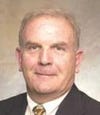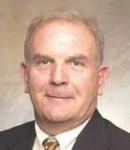July 16, 2009

Andrew Young is best known as a Civil Rights Leader and Clergyman, but he began his college career planning to be a biologist, then a botanist — in hopes of helping the World feed itself one day.

FORMER U.N. Ambassador Andrew Young says sustainability and profit are keys to the future of biotechnology.
Only after he became a follower of Martin Luther King Jr. did he turn to religion as both a college major and a profession. Now, at age 77, Young says much of his focus on life has turned full circle back to trying to help the people of the World feed themselves.
Speaking at the recent BIO International, a global meeting of high techies that includes a section on agriculture, Young says he learned the hard way that charity only keeps you poor.
In 1985, Young teamed with former U.S. President Jimmy Carter, and famed scientist and agricultural researcher Norman Borlaug, to put together a mission to Africa, funded by a large bank in Pakistan and several philanthropists.
Their mission was to find 50 African farmers in five countries in Africa, provide them with all the technical knowledge Professor Borlaug could find, all the latest seed, the latest in equipment and provide the means by which these farmers could be as productive as any farmer anywhere in the World.
The next year the organization found 1,500 African farmers and again gave them the technology they needed to be successful. That was President Carter and Professor Borlaug’s philosophy on bringing the Green Revolution to Africa.
“We wanted to show the World that African farmers, given the right tools and knowledge could feed themselves and many other of their countrymen and help move the Continent of Africa from starvation to World leaders in agricultural production,” Young says.
They subsequently went back to monitor the progress of these farmers, located more farmers and gave them the same tools and technology given to the original group.
“As expected these farmers were highly successful, they doubled and tripled their yields every year. Essentially, the World didn’t care. Politicians didn’t care because there weren’t enough numbers to influence their power and business didn’t care because there was no profit.
“Technology without profit and without a way for the population to buy into it cannot be sustainable. Without sustainability these projects cannot succeed long-term.
“Those farmers we selected are still there — most of them — and are still productive, yet our mission to revolutionize agriculture in Africa has not succeeded,” Young says.
Their efforts were part of former President Carter’s Global 2000. More than any other Cold War president, Carter believed the United States had a moral obligation to help Africa fight famine and disease.
Global 2000, Inc., grew out of the pessimistic June 1980 Global 2000 Report — the result of an exhaustive study conducted by the Council on Environmental Quality and the State Department — which predicted that trends in developing countries' population growth and resource management, and environmental degradation, would result in continued poverty and social conflict.
Eventually, the report warned, these stresses could escalate into global catastrophes. Aiming to turn the situation around, Global 2000 set itself quite a goal: To transform sub-Saharan Africa from an agricultural waste-land to a thriving breadbasket.
As well-intended as Global 2000 was, it was not successful, Young says, “because we gave them the technology and the tools. There was no mechanism through which anyone other than these farmers could benefit from their success. There was not a social or political buy-in by the people of Africa for Global 2000.
“Over time, and for various reasons the Pakistani bank failed, the philanthropists found other causes and we went back to the drawing board to try and figure out what went wrong with our plan to feed the starving millions in Africa,” Young says.
In more recent times Young has returned to Africa to help farmers, but this time, he says, there has to be profit and there has to be political rewards. While that philosophy may fly in the face of philanthropists and charitable organizations all over the world, it is a mission that has a chance to work, rather than one doomed to fail, he adds.
Borlaug has gone on to found various humanitarian organizations and continues to support Young in his efforts to find the right combination of philanthropy and profit-based technology to help impoverished people all over the world.
In 1970 Borlaug was awarded the Nobel Peace Prize for a lifetime of work to feed a hungry world. Although a scientist with outstanding contributions, perhaps Borlaug's greatest achievement has been his unending struggle to integrate the various streams of agricultural research into viable technologies and to convince political leaders to bring these advances to fruition.
Borlaug was raised in Cresco, a small farming community in northeast Iowa. He learned his work ethic on a small, mixed crop and livestock family farm and obtained initial education in a one-room rural school house.
Young continues to foster economic development in the developing world as a business consultant and as chairman of the Southern Africa Enterprise Development Fund and co-chairman of GoodWorks International.
“The sustainable production of food and fuel are becoming increasingly important as our global population continues to grow,” said Jim Greenwood, BIO President and CEO. “This educational summit and Andrew Young’s Keynote Address helped bring together agriculture, energy, environmental, business and policy experts from around the world to discuss how we are meeting these pressing challenges through biotechnology,” he adds.
For his part, Young says accomplishing the long-time goal of reducing, if not eliminating, world hunger is a matter of sustainability. Agriculture systems that don’t make a profit from technology simply won’t use the technology, he says. “And, without technology, agriculture cannot be sustainable.”
Roger Wyse, former dean of agriculture at the University of Wisconsin, and now an executive with Burrell Corporation, says agriculture will remain at the forefront of the next generation of biofuels.
There is a realistic goal of doubling corn yield per acre in the next decade, he says. Already increases in technology and subsequent yield increases have more than offset the amount of U.S. corn used to produce ethanol.
“Biomass is the key to a sustainable future. How it is converted from biomass, whether grown as with corn, sugarcane or a number of other crops or harvested from forest residue, will play a major role in the direction of agriculture and rural America,” Wyse says.
“There is a real potential, with the technology available today, to convert biomass not only to fuel, but to food and a number of other industrial products.” Wyse, speaking at the recent BIO International in Atlanta, Ga., showed the audience a cup made from corn as an example of bio-products.
Young echoed Wyse’s comments about technology being available right now to alleviate the world’s hunger and energy needs. Using it wisely is the key.
“We have the opportunity to make rainbows happen after the storm of technology, but it must come with sustainability, acceptance by the public and political leaders, and most of all it must come with profit,” Young concludes.
e-mail: [email protected]
About the Author(s)
You May Also Like






